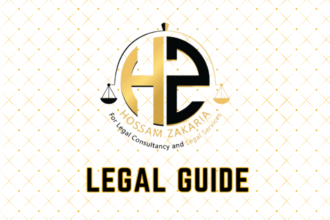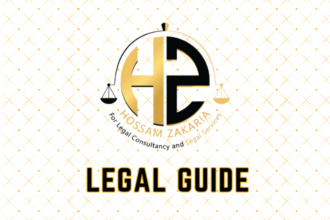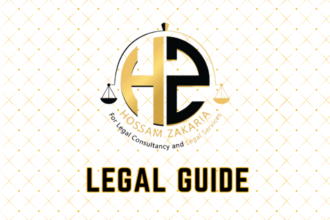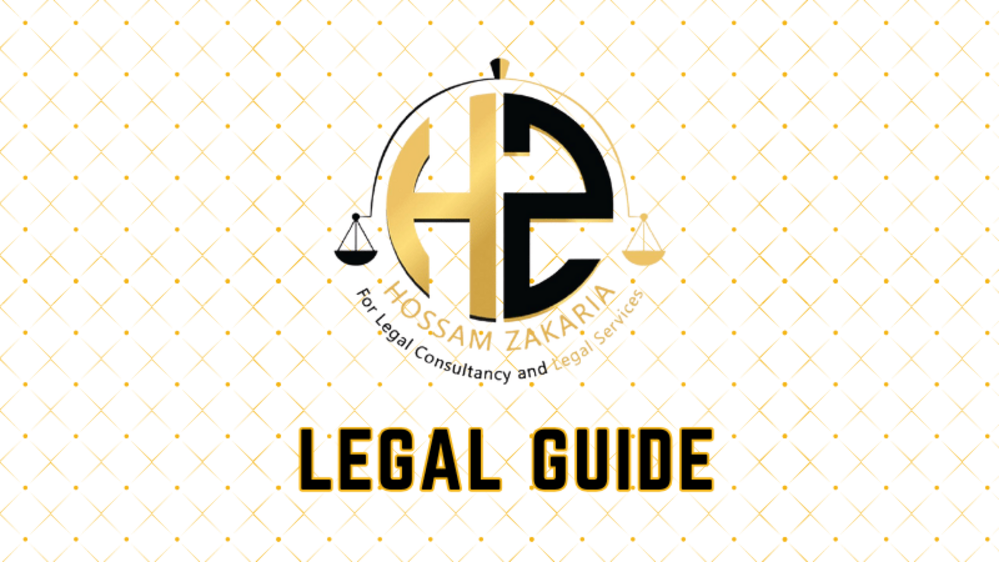Introduction
Saudi Arabia’s dynamic banking sector presents unique opportunities and complex challenges for UAE businesses expanding or transacting in the Kingdom. As commercial ties deepen between the UAE and Saudi Arabia, a nuanced understanding of both conventional and Islamic banking frameworks becomes essential for legal advisors, corporate executives, and compliance teams. Significant legal updates over recent years, both within the UAE and across the Gulf Cooperation Council (GCC), impact cross-border financial transactions, banking operations, and business strategies. This article delivers an expert comparison, grounded in authoritative legal sources, between conventional and Islamic banking systems as they operate in Saudi Arabia, focusing on critical considerations for UAE-based organisations. Readers will benefit from practical legal analysis, compliance recommendations, and actionable guidance tailored to the current regulatory context.
Given the regulatory shifts in recent UAE and Saudi legislation—such as updates to the UAE Federal Decree-Law No. 14 of 2018 on the Central Bank and the Organisation of Financial Institutions and Activities, and the ongoing evolution of the Saudi Banking Control Law—senior managers must re-examine their banking approach in Saudi Arabia. This article aims to clarify differences between the two banking models, presenting real-world implications supported by relevant UAE and Saudi laws and decrees. Whether establishing subsidiaries, managing investments, or conducting trade, understanding these distinctions equips UAE businesses to make fully informed, compliant decisions.
Table of Contents
- Overview of Banking Regulations in Saudi Arabia
- Relevance for UAE Businesses and Legal Compliance
- Key Differences Between Conventional and Islamic Banking
- Comparative Table: Legal and Practical Distinctions
- Case Studies and Practical Scenarios
- Legal Risks and Non-Compliance in Saudi Banking
- Recommended Compliance Strategies for UAE Businesses
- Conclusion and Forward-Looking Best Practices
Overview of Banking Regulations in Saudi Arabia
Regulatory Framework and Supervisory Authorities
The Saudi Central Bank (SAMA) acts as the primary regulatory authority overseeing the Kingdom’s banking sector. Licensed banks in Saudi Arabia must comply with the Banking Control Law (enacted by Royal Decree No. M/5 of 1386H (1966)), which codifies operational, prudential, and conduct standards. In recent years, SAMA has also introduced sector-specific guidelines and circulars targeting corporate governance, anti-money laundering (AML), counter-terrorism financing (CTF), and consumer protection—many aligning with or exceeding standards set in the UAE under Federal Decree-Law No. 20 of 2018 (On Anti-Money Laundering Crimes).
Islamic vs. Conventional Licences
Saudi Arabia permits both conventional and Islamic (Sharia-compliant) banking operations, though most domestic institutions—including the largest commercial banks—operate fully or predominantly under Sharia principles. Foreign banks, such as certain UAE-headquartered institutions, may be granted local licences in either format, subject to strict SAMA due diligence and ongoing supervision. This duality creates operational and compliance implications for UAE businesses, particularly regarding financing structures, documentation, and dispute resolution.
Relevance for UAE Businesses and Legal Compliance
Cross-Border Banking and Investment Landscape
UAE-based companies frequently engage in cross-border banking with Saudi Arabia, whether for trade finance, project funding, treasury management, or M&A activity. The banking model selected (conventional or Islamic) influences everything from loan structuring and guarantee forms (notably under UAE’s Federal Law No. 18 of 1993 ‘Commercial Transactions Law’) to compliance with evolving Saudi and UAE AML/CTF standards. Understanding distinctions in permissible contracts, fees, and risk allocation is key to optimising financial strategy and minimising regulatory friction.
Recent Legal Developments Impacting UAE-Saudi Financial Transactions
Both UAE and Saudi regulators continue to update their frameworks. In the UAE, Federal Decree-Law No. 26 of 2020 amended key provisions on commercial companies, affecting how local subsidiaries interact with parent companies and structure financial liabilities. Meanwhile, Saudi Arabia’s latest SAMA circulars on Sharia governance and risk management (notably SAMA’s Sharia Governance Framework, 2020) impose enhanced requirements on financial institutions, impacting all counterparties including UAE clients. Keeping abreast of these updates—and adapting documentation and internal controls accordingly—is a legal imperative.
Key Differences Between Conventional and Islamic Banking
1. Underlying Legal Principles
Conventional banking in Saudi Arabia operates under civil and commercial law principles, permitting interest-based (riba) lending, debt trading, and fee-based financial products. Islamic banking, in contrast, adheres strictly to Sharia principles, which prohibit riba, gharar (excessive uncertainty), and maysir (speculation/gambling). Permissible contracts in Islamic finance are built on modes such as murabaha (cost-plus sale), ijara (leasing), mudaraba (profit-sharing), and musharaka (joint venture).
2. Structural Differences in Financial Products
Product architecture is fundamentally different. Conventional loans feature fixed or floating interest rates, standard security requirements, and default-based remedies. Islamic finance replaces the loan structure with asset-based transactions, transfer of ownership, shared business risks, and profit/loss sharing structures. Documentation in Islamic banking is subject to Sharia board review, a requirement absent in conventional arrangements. UAE businesses must therefore anticipate extended contract negotiation periods and unique structuring in Saudi projects using Islamic finance.
3. Compliance, Governance, and Disputes
Conventional banks in Saudi Arabia are supervised largely through SAMA and Saudi commercial courts. Islamic banks face dual oversight—SAMA plus internal/external Sharia supervisory boards. Dispute resolution may entail review by Sharia scholars or appeal to Sharia courts, potentially complicating enforcement compared to the process under UAE law or standard international arbitration frameworks. For UAE businesses, understanding these dispute paths is critical in contingency planning and contract drafting.
Comparative Table: Legal and Practical Distinctions
| Aspect | Conventional Banking | Islamic Banking |
|---|---|---|
| Legal Basis | Saudi Commercial Law; SAMA Banking Control Law | Sharia Law; SAMA Islamic Banking Standards; Sharia Boards |
| Interest (Riba) | Permitted and central to most products | Strictly prohibited |
| Product Structures | Interest-bearing loans and deposits | Asset-based, profit-sharing, and sale/lease contracts (Murabaha, Ijara, etc.) |
| Regulation | Primarily by SAMA and commercial courts | Dual: SAMA and internal/external Sharia boards |
| Documentation | Standard banking contracts, minimal religious review | Sharia review mandatory, longer negotiation and approval processes |
| Default/Enforcement | Conventional courts, established enforcement mechanisms | Possible Sharia court intervention or scholar review; outcome can differ |
| Permitted Fees | Wide range, including penalties and compounding interest | Limited; late payment fees often donated and not retained as profit |
Case Studies and Practical Scenarios
Case Study 1: UAE Trading Company in Saudi Joint Venture
A UAE-based trading company enters a joint venture with a Saudi partner. The JV seeks project financing from a Saudi Islamic bank. The transaction must comply with SAMA’s Sharia Governance Framework, requiring a murabaha-based financing structure. Legal review by both parties (and their respective Sharia boards) prolongs the transaction but avoids riba issues. The UAE company adapts its security structure and documentation for Sharia board sign-off, resulting in longer negotiation but frictionless execution thereafter.
Case Study 2: Conventional Facility with Cross-Border Guarantees
An Emirati manufacturer secures a conventional loan from a Saudi affiliate of an international bank. UAE security is governed by Federal Law No. 4 of 2020 (on Securing Interest over Movable Assets), while Saudi security requires SAMA compliance. The facility includes interest-based repayments and Western-style covenants. In the event of default, enforcement follows the Saudi commercial court process, generally mirroring the experience of UAE litigation under the Commercial Transactions Law, but with jurisdictional nuances.
Hypothetical Example: Non-Compliance Scenario
A UAE business, unfamiliar with Sharia restrictions, attempts to execute an interest-bearing loan arrangement with a Saudi Islamic bank. SAMA intervenes, the bank’s Sharia board rejects the contract, and the transaction is delayed by months. Both financial and reputational costs result, underscoring the importance of legal due diligence and cultural awareness.
Legal Risks and Non-Compliance in Saudi Banking
1. Reputational Risk and Transaction Delays
Engaging in prohibited transactions (e.g., riba-based loans with Islamic banks) can cause regulatory scrutiny and reputational damage on both sides of the border. UAE businesses risk blacklist status or regulatory reporting in Saudi Arabia.
2. Documentation Errors and Enforceability
Use of template documents designed for the UAE or for conventional banks could render contracts void or unenforceable in Saudi Islamic courts. Sharia-compliant deals require unique structuring and review—omitting these steps creates enforceability risks and regulatory penalties.
3. Penalties for Breach
| Type of Breach | Conventional Banking Penalty | Islamic Banking Penalty |
|---|---|---|
| Non-compliance with SAMA regulations | Fines, loss of banking privileges, reputational damage | Same as conventional, plus review by Sharia board and possible contract annulment |
| Improper documentation | Enforceability issues, litigation risk | Nullification by Sharia board, reputational impact, regulatory intervention |
| Late payments | Late fees, compounding interest | Fees may be donated (not profit), possible escalation to Sharia court |
Recommended Compliance Strategies for UAE Businesses
1. Early Legal Assessment and Structuring
UAE businesses operating in Saudi Arabia should conduct early legal audits of their financing plans, engaging Saudi and UAE counsel to map the regulatory landscape. Anticipate which contracts require Sharia review and which can follow standard (conventional) documentation.
2. Internal Training and Governance
Ensure cross-functional teams are trained in both Sharia-compliant and conventional banking standards. Incorporate regulatory updates from SAMA and the UAE Central Bank into compliance manuals and onboarding programmes.
3. Contractual Flexibility and Dispute Planning
Draft contracts to include alternative dispute resolution clauses, acknowledge applicable law forums, and provide flexibility for either Sharia or conventional court claims as appropriate. Prepare for additional review periods when engaging Islamic banks.
4. Ongoing Monitoring of Legal Developments
- Subscribe to the UAE Ministry of Justice Legal Gazette for Federal Law updates.
- Monitor SAMA circulars and announcements via the official Saudi Central Bank portal.
- Participate in joint UAE-Saudi business council briefings to stay ahead of cross-border legal developments.
5. Compliance Visual Aids and Checklists
Suggested Visual Placement: Insert a process flow diagram illustrating contract vetting through both SAMA and Sharia board pathways. Consider a compliance checklist table:
| Compliance Step | Conventional Banking | Islamic Banking |
|---|---|---|
| Due Diligence | Standard corporate KYC/AML | KYC/AML + Sharia screening |
| Contract Drafting | Generic banking agreements | Sharia-compliant templates, board review |
| Transaction Approval | Standard credit committee | Credit + Sharia board approval |
Conclusion and Forward-Looking Best Practices
The distinction between conventional and Islamic banking in Saudi Arabia is foundational, shaping everything from transaction structuring to litigation risk. As the UAE and Saudi legal and regulatory environments evolve—with heightened compliance demands under new decrees and central bank regulations—UAE businesses must pursue proactive legal diligence when choosing banking partners and structuring cross-border deals.
Staying ahead demands engagement with both conventional legal frameworks and Sharia supervisory structures. The regulatory trajectory signals even stronger controls, deeper integration across the GCC, and greater scrutiny of cross-border financial activity in the years to come. UAE organisations are advised to:
- Maintain comprehensive, up-to-date legal compliance programmes aligned with both UAE and Saudi guidance;
- Invest in knowledge sharing around Sharia banking, especially for finance and in-house legal teams;
- Leverage professional UAE-Saudi legal consultancy services for deal structuring and regulatory interface.
In summary, the clear dichotomy between conventional and Islamic banking in Saudi Arabia will continue to meaningfully influence how UAE businesses transact. By understanding the legal implications, preparing for compliance, and adopting a cross-jurisdictional perspective, organisations safeguard their interests and unlock sustainable growth in this critical regional market.



